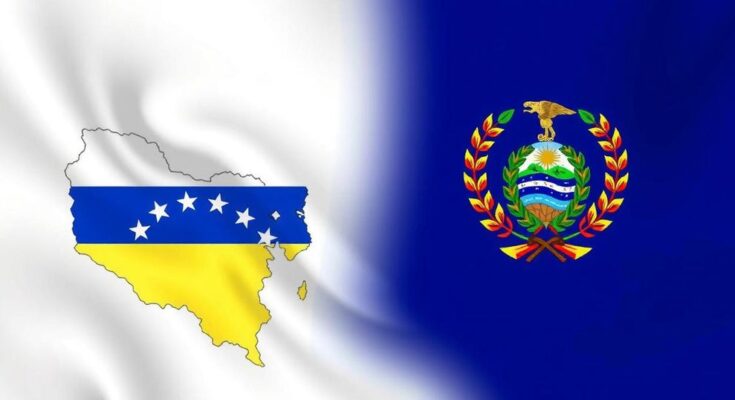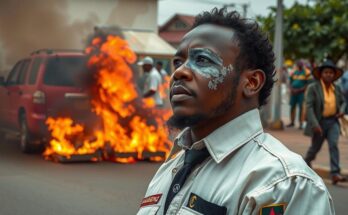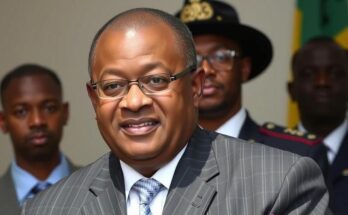Nicaragua’s President Daniel Ortega has proposed sending “Sandinista fighters” to support Venezuelan President Nicolas Maduro after a disputed election, amid rising protests and political violence. Ortega criticized other Latin American leaders for not supporting Maduro’s election claim while both countries face scrutiny over alleged electoral fraud and human rights abuses.
Nicaragua’s President Daniel Ortega has extended an offer to send “Sandinista fighters” to assist Venezuelan President Nicolas Maduro amidst rising tensions following a contentious presidential election in July. This offer comes amid protests and regarding allegations of electoral fraud after Maduro’s disputed victory that has enflamed political violence, resulting in civilian casualties and large-scale detentions of opponents. Ortega, during a virtual summit with other Latin American leaders, pledged his support to Maduro, stating that in the event of an “armed counterrevolution,” Sandinista fighters would be deployed to aid the Venezuelan government. While “Sandinista” pertains to members of Ortega’s left-wing political faction, the specifics of the proposed support remain vague, leading to questions regarding whether this would involve police forces, military personnel, or armed pro-government groups linked to violent crackdowns in Nicaragua. Ortega also took the opportunity to admonish fellow leftist leaders such as Brazil’s Lula and Colombia’s Petro for not endorsing Maduro’s presidency, calling it “shameful” and suggesting they were yielding to U.S. influence. In response, Petro condemned Ortega for human rights violations in Nicaragua, emphasizing his commitment to democratic principles. The Venezuelan electoral outcome is under heavy scrutiny, as opposition parties, various international observers, and electoral watchdogs have raised significant doubts about its integrity. The National Electoral Council, perceived as biased in Maduro’s favor, reported a narrow victory margin for the incumbent. However, documentation from voting machines indicates that opposition candidate Edmundo Gonzalez Urrutia likely won the election, as suggested by several experts. The ongoing political crisis reflects broader tensions within Latin American governance and civil rights.
The political climate in Nicaragua and Venezuela illustrates a broader regional struggle between authoritarian governance and democratic aspirations. President Daniel Ortega has been in power in Nicaragua since the late 2000s, sustaining multiple alleged election manipulations that have drawn international criticism. Similarly, Nicolas Maduro’s administration in Venezuela faces accusations of electoral fraud, exacerbated by violent crackdowns on dissent. With allegations from foreign observers, the legitimacy of both leaders is now under scrutiny amidst increasing social unrest and human rights violations in their respective countries.
In summary, Nicaragua’s President Ortega has openly pledged military support for Venezuela’s Maduro in the wake of a disputed election that has led to civil unrest and fatalities. This dynamic raises concerns about regional stability and governance, with both leaders facing accusations of undermining democratic principles. The implications of Ortega’s threats and the scrutiny over both nations’ electoral processes underscore the fragility of political freedoms in Latin America.
Original Source: edition.cnn.com




